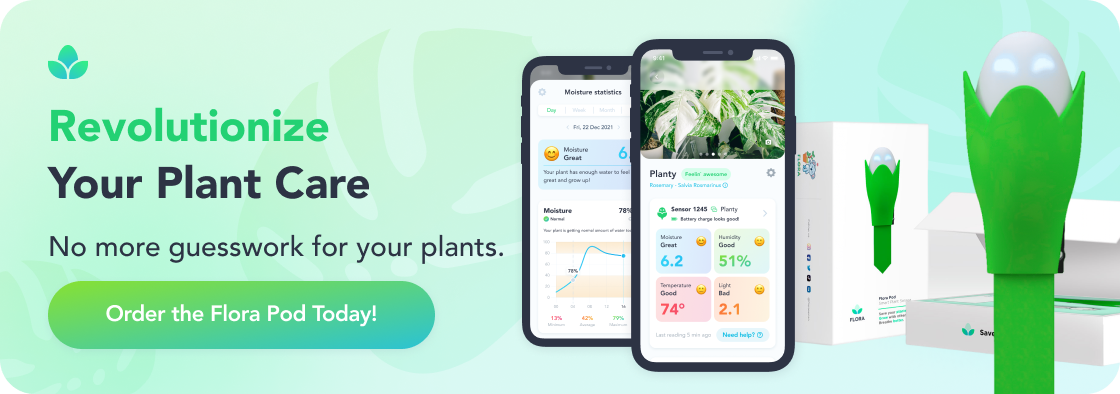Pet-Friendly Greenery: Are Hoyas Safe for Pets?

Hoyas, commonly known as wax plants, are popular houseplants due to their attractive foliage and fragrant flowers. However, if you're a pet owner, it's crucial to know whether these plants are safe for your furry friends. In this guide, we'll explore the safety of hoyas for pets and provide tips on how to keep your home both green and pet-friendly.
Are Hoyas Pet Safe?

General Safety for Pets
Hoyas are generally considered non-toxic to pets, including cats and dogs. This means that if your pet happens to nibble on a hoya plant, they are unlikely to suffer serious harm. However, it's important to note that while hoyas are not toxic, they can still cause mild gastrointestinal upset if consumed in large quantities. This can include symptoms like nausea, vomiting, and diarrhea.
Specific Varieties
Hoya Carnosa: This popular variety, known for its waxy leaves and sweet-smelling flowers, is non-toxic to cats and dogs. However, the milky sap found in its leaves and stems can cause mild digestive issues if ingested in significant amounts.
Hoya Australis: Also non-toxic, this variety is safe for both cats and dogs. While ingestion of large amounts might cause some digestive discomfort, it is not considered harmful.
Hoya Kerrii: Known as the sweetheart hoya, this plant is also safe for pets. Similar to other hoya varieties, it can cause mild gastrointestinal upset if a pet eats a substantial amount.
Are Hoya Plants Toxic to Cats?

Hoyas, commonly known as wax plants, are popular houseplants appreciated for their attractive foliage and fragrant flowers. If you have cats, it's natural to worry about the safety of the plants you bring into your home. Fortunately, hoya plants are generally considered non-toxic to cats.
Safety for Cats
Non-Toxic Nature: Hoyas are not listed among the toxic plants by major animal health organizations such as the ASPCA. This means that if your cat nibbles on a hoya plant, it is unlikely to suffer from poisoning.
Possible Mild Symptoms: Although hoya plants are non-toxic, ingesting large amounts can still cause mild gastrointestinal upset in cats. This is because cats' digestive systems are not designed to process large quantities of plant material. Symptoms may include:
Nausea
Vomiting
Diarrhea
These symptoms are usually mild and temporary. However, if your cat shows persistent symptoms, it's a good idea to consult a veterinarian to rule out other potential causes.
Preventive Measures
To ensure your cat's safety and prevent any potential issues:
Placement: Keep hoya plants in areas that are difficult for your cat to reach, such as high shelves or hanging baskets.
Deterrents: Use natural deterrents like citrus peels or vinegar sprays around the plant base, as cats generally dislike these scents.
Supervision: Monitor your cat's interaction with plants and gently discourage chewing behavior.
Are Hoya Plants Toxic to Dogs?

For dog owners, ensuring that houseplants are safe for their pets is equally important. Similar to cats, dogs are curious animals that might chew on plants within their reach. Hoyas are a safe choice for homes with dogs.
Safety for Dogs
Non-Toxic Nature: According to various sources, including veterinary health guidelines, hoya plants are non-toxic to dogs. This means that if your dog chews on a hoya plant, it is unlikely to suffer from any toxic effects.
Possible Mild Symptoms: Just like with cats, eating large amounts of hoya plant material can cause mild digestive upset in dogs. Symptoms may include:
Nausea
Vomiting
Diarrhea
These symptoms are typically mild and should resolve on their own. If your dog experiences severe or prolonged symptoms, it's important to seek veterinary advice to ensure there are no other underlying issues.
Preventive Measures
To keep your dog safe and prevent potential issues:
Placement: Position hoya plants in places that are difficult for your dog to access, such as on high surfaces or in hanging pots.
Deterrents: Consider using pet-safe deterrent sprays around the plant. Many dogs are deterred by the smell of citrus or vinegar.
Supervision: Keep an eye on your dog when it is near houseplants and discourage any attempts to chew on them.
By taking these precautions, you can enjoy the beauty of hoya plants without worrying about the safety of your pets.
Potential Risks and Symptoms
While hoyas are not toxic, pets that chew on the plant might experience mild symptoms due to the indigestible plant material. These symptoms can include:
Nausea and Vomiting: Consuming a large amount of hoya can lead to stomach upset and vomiting. This is not due to toxicity but because a pet's digestive system might struggle to process the plant material.
Diarrhea: Similar to other plants, eating too much hoya can cause diarrhea.
If your pet shows persistent or severe symptoms, it's advisable to consult a veterinarian to rule out any other potential issues.
Preventing Pet Exposure to Hoyas
Even though hoyas are safe, it’s wise to take precautions to prevent your pets from chewing on them:
Placement: Keep hoyas out of reach of curious pets. Place them on high shelves, in hanging baskets, or in rooms that are off-limits to pets.
Deterrents: Use natural deterrents like citrus peels or vinegar sprays, as cats and dogs generally dislike these scents.
Supervision: Monitor your pets when they are around plants and gently discourage them from chewing on the foliage.
Pet-Safe Alternatives: Provide pet-safe plants like cat grass or spider plants to satisfy your pet's curiosity and need to chew on greenery.
Pet-Friendly Alternatives
If you're looking for additional pet-friendly plants to complement your hoya, consider the following:
Spider Plant (Chlorophytum comosum): Non-toxic to cats and dogs, and known for its air-purifying properties.
Boston Fern (Nephrolepis exaltata): Safe for pets and adds a lush, green touch to any room.
Areca Palm (Dypsis lutescens): Another non-toxic plant that can improve indoor air quality.
In summary, hoyas are safe for pets and make excellent houseplants for pet-friendly homes. While they are non-toxic, it's best to keep them out of reach to prevent any potential digestive issues. By taking a few precautions and offering pet-safe alternatives, you can enjoy the beauty of hoyas without compromising the safety of your furry friends.
Fern's Leafy Learnings
Non-Toxic Choice: Hoyas are generally safe for both cats and dogs.
Mild Symptoms: Ingesting large amounts can cause mild gastrointestinal upset.
Placement Tips: Keep hoyas out of reach to prevent chewing.
Natural Deterrents: Use citrus peels or vinegar sprays to keep pets away.
Pet-Safe Alternatives: Complement hoyas with other non-toxic plants like spider plants and Boston ferns.
Deepen Your Roots with Flora
At Flora, we not only bring you a vibrant selection of locally sourced, rare, and delightful plants, but we also serve as your continuous guide in your plant parenting voyage, ensuring every leaf in your sanctuary thrives. With our Flora Pod™ technology and a nurturing community of over 250,000 plant lovers, we cultivate a space where every plant parent - novice or expert - can blossom.
We propagate with a commitment to sustainability, connection, and ceaseless growth, fostering a community where each member, and their plants, are cherished and nurtured.
Crave a lush, thriving green space? Adopt a plant from Flora today!
Flora Pod™ is featured on Shark Tank!

5 Signs Your Houseplant Needs Repotting Now
Mar 02, 2026
6 Anthurium Benefits You Didn't Know About
Mar 02, 2026

How to Prune Your Houseplants Before Spring Growth Season
Mar 02, 2026

10 Best Houseplants for Spring Repotting Success
Mar 02, 2026

Can ZZ Plants Survive in Low Light Conditions?
Mar 02, 2026

5 Critical Pre-Spring Pruning Tips for Houseplants
Mar 02, 2026

Can Succulents Survive Winter Outdoors in Your Climate Zone?
Mar 02, 2026

Which Houseplants Are Toxic to Cats and Should You Avoid Them?
Mar 02, 2026




